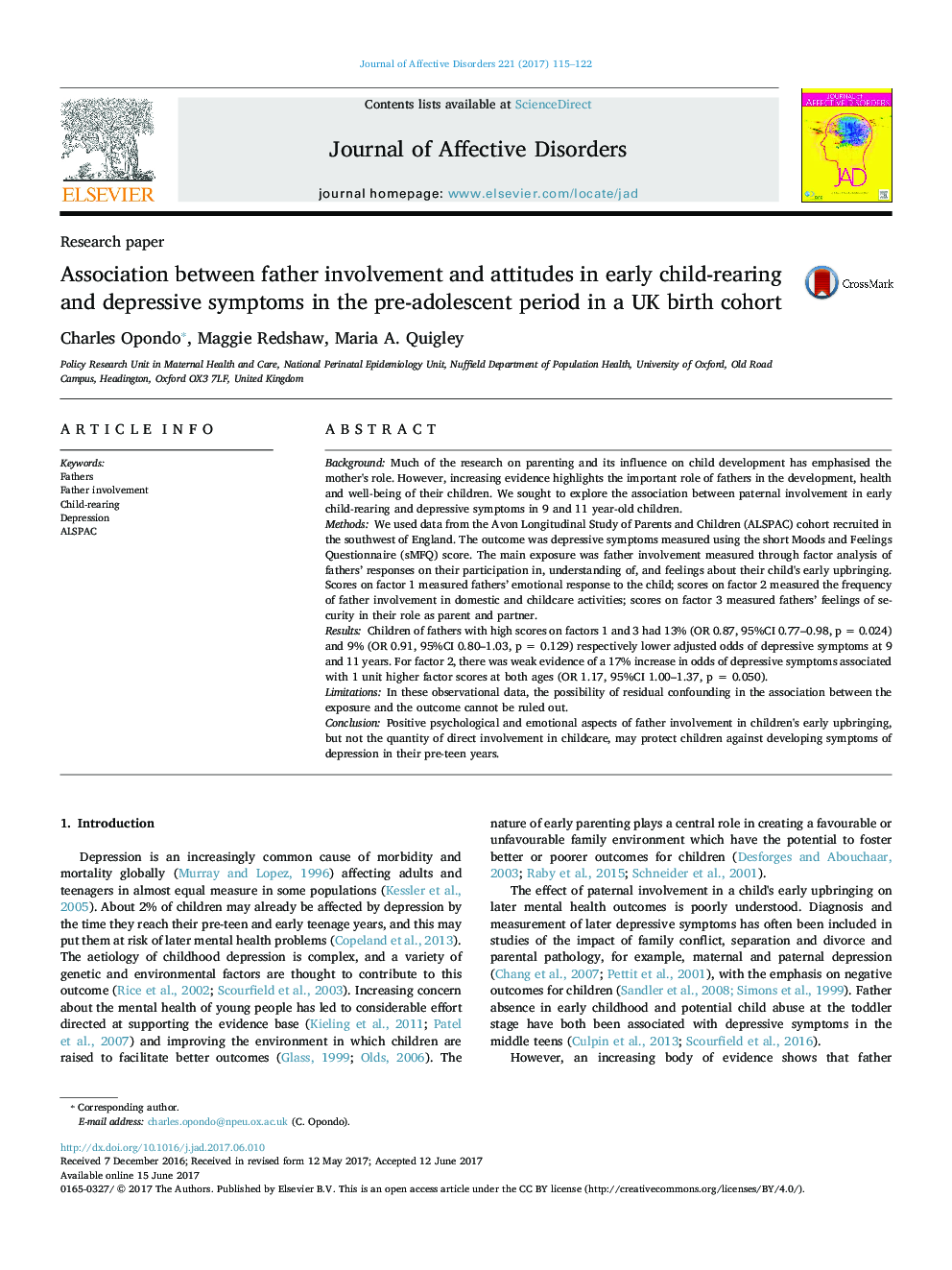| کد مقاله | کد نشریه | سال انتشار | مقاله انگلیسی | نسخه تمام متن |
|---|---|---|---|---|
| 5721998 | 1608104 | 2017 | 8 صفحه PDF | دانلود رایگان |
- Emotionally responsive parenting by fathers is associated with less depression in pre-teenagers.
- Paternal involvement in child-rearing appears to be associated with more depression.
- Adjusting for paternal work hours and socioeconomic status attenuates the latter association.
BackgroundMuch of the research on parenting and its influence on child development has emphasised the mother's role. However, increasing evidence highlights the important role of fathers in the development, health and well-being of their children. We sought to explore the association between paternal involvement in early child-rearing and depressive symptoms in 9 and 11 year-old children.MethodsWe used data from the Avon Longitudinal Study of Parents and Children (ALSPAC) cohort recruited in the southwest of England. The outcome was depressive symptoms measured using the short Moods and Feelings Questionnaire (sMFQ) score. The main exposure was father involvement measured through factor analysis of fathers' responses on their participation in, understanding of, and feelings about their child's early upbringing. Scores on factor 1 measured fathers' emotional response to the child; scores on factor 2 measured the frequency of father involvement in domestic and childcare activities; scores on factor 3 measured fathers' feelings of security in their role as parent and partner.ResultsChildren of fathers with high scores on factors 1 and 3 had 13% (OR 0.87, 95%CI 0.77-0.98, p = 0.024) and 9% (OR 0.91, 95%CI 0.80-1.03, p = 0.129) respectively lower adjusted odds of depressive symptoms at 9 and 11 years. For factor 2, there was weak evidence of a 17% increase in odds of depressive symptoms associated with 1 unit higher factor scores at both ages (OR 1.17, 95%CI 1.00-1.37, p = 0.050).LimitationsIn these observational data, the possibility of residual confounding in the association between the exposure and the outcome cannot be ruled out.ConclusionPositive psychological and emotional aspects of father involvement in children's early upbringing, but not the quantity of direct involvement in childcare, may protect children against developing symptoms of depression in their pre-teen years.
Journal: Journal of Affective Disorders - Volume 221, 15 October 2017, Pages 115-122
